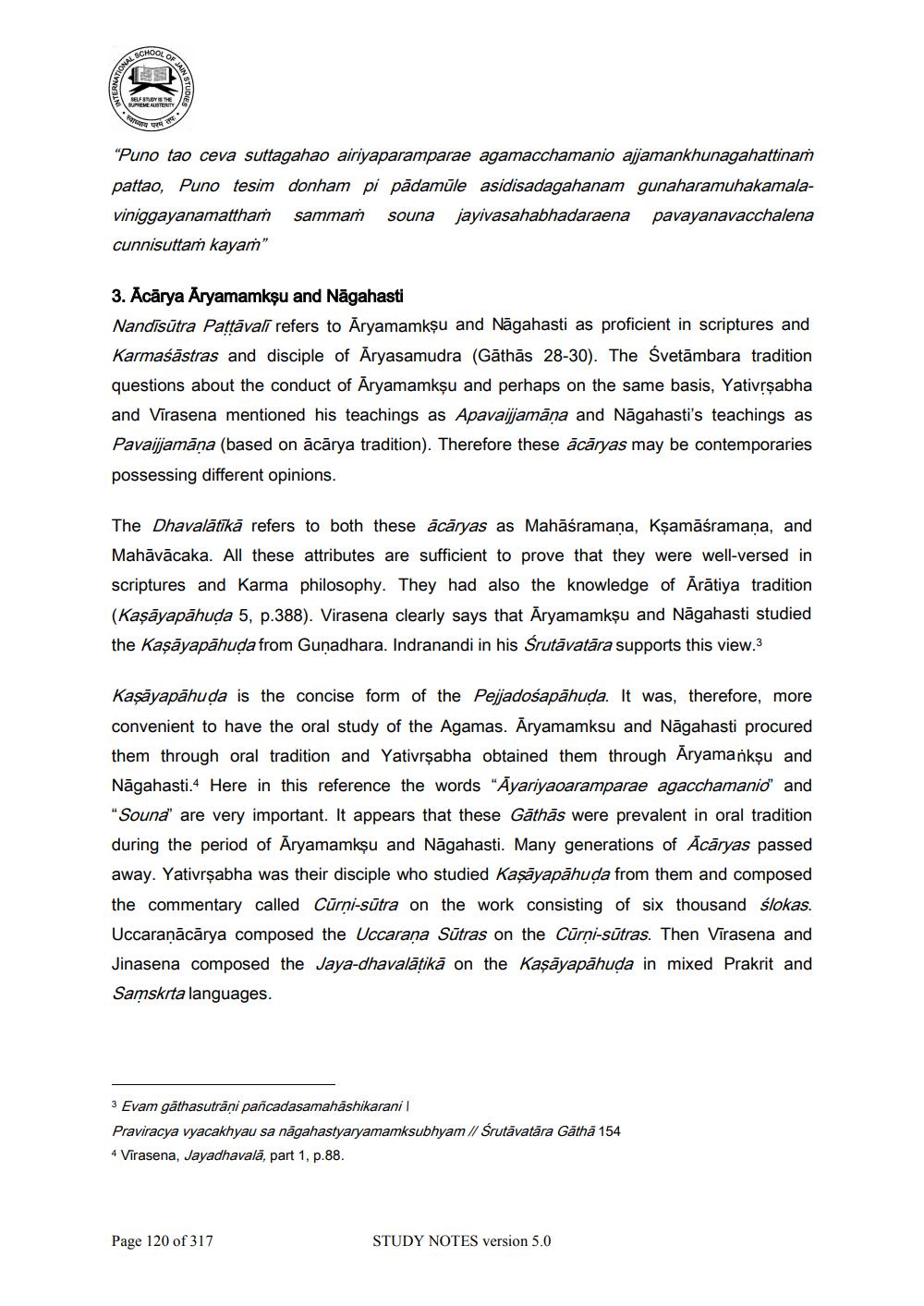________________
"Puno tao ceva suttagahao airiyaparamparae agamacchamanio ajjamankhunagahattinas pattao, Puno tesim donham pi pādamūle asidisadagahanam gunaharamuhakamalaviniggayanamatthar sammaṁ souna jayivasahabhadaraena pavayanavacchalena cunnisuttaṁ kayaṁ"
3. Acārya Aryamamkşu and Nāgahasti Nandīsūtra Pattāvalī refers to Aryamamkşu and Nāgahasti as proficient in scriptures and Karmaśāstras and disciple of Āryasamudra (Gāthās 28-30). The Śvetāmbara tradition questions about the conduct of Āryamamkşu and perhaps on the same basis, Yativrsabha and Vīrasena mentioned his teachings as Apavaijjamāṇa and Nāgahasti's teachings as Pavaijjamāna (based on ācārya tradition). Therefore these ācāryas may be contemporaries possessing different opinions.
The Dhavalātikā refers to both these ācāryas as Mahāśramana, Kșamāśramaņa, and Mahāvācaka. All these attributes are sufficient to prove that they were well-versed in scriptures and Karma philosophy. They had also the knowledge of Ārātiya tradition (Kaşāyapāhuda 5, p.388). Virasena clearly says that Āryamamkşu and Nāgahasti studied the Kaşāyapāhuda from Gunadhara. Indranandi in his Śrutāvatāra supports this view.3
Kaşayapāhuda is the concise form of the Pejjadośapāhuda. It was, therefore, more convenient to have the oral study of the Agamas. Āryamamksu and Nāgahasti procured them through oral tradition and Yativrṣabha obtained them through Aryamankşu and Nāgahasti. Here in this reference the words "Āyariyaoaramparae agacchamanio" and "Souna" are very important. It appears that these Gāthās were prevalent in oral tradition during the period of Āryamamkşu and Nāgahasti. Many generations of Ācāryas passed away. Yativrşabha was their disciple who studied Kaşāyapāhuda from them and composed the commentary called Cūrni-sūtra on the work consisting of six thousand ślokas. Uccaranācārya composed the Uccarana Sūtras on the Cūrņi-sūtras. Then Vīrasena and Jinasena composed the Jaya-dhavalātikā on the Kaşāyapāhuda in mixed Prakrit and Samskrta languages.
3 Evam gāthasutrāni pancadasamahäshikarani! Praviracya vyacakhyau sa nagahastyaryamamksubhyam // Śrutavatāra Gathā 154 4 Virasena, Jayadhavala, part 1, p.88.
Page 120 of 317
STUDY NOTES version 5.0




